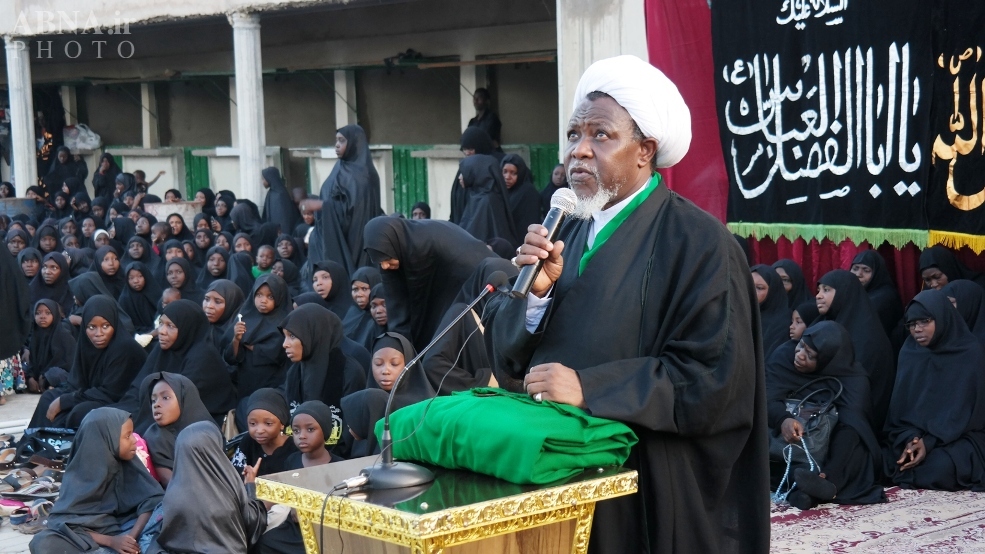“Shi’ites must never insult the sanctities of other religions during Muharram” Grand Ayatollah Makarem
During a meeting with a group of eulogists from the Revolutionary Guards in Qom, Grand Ayatollah Naser Makarem-Shirazi discussed the role the uprising of Imam Husayn (A) has played throughout history but warned Shi’ite mourners of the tragic impact their words can have if they insult the personalities of our Sunni brethren.
Referring to the recent celebration of the event of Mubahilah, Ayatollah Makarem-Shirazi said that it is clear that the verse of Mubahilah in the Quran [3:61] refers to the lofty status of the Ahlul-Bayt (A), saying: “This is agreed upon my both Shi’ite and Sunni commentators.”
In regards to the upcoming month of Muharram, where Shi’ite Muslims mourn the martyrdom of Imam Husayn (A), the Prophet Muhammad’s grandson, Ayatollah Makarem-Shirazi pointed to the narration from Imam Ja’far as-Sadiq (A) wherein the sixth Imam stated: “Surely, there is a burning heat in the hearts of the believers with respect to the killing of Husayn that will never cool down!” and said: “Every year, we see this heat with our own eyes, it will never fade and will stay forever.”
His Eminence called on preachers to take proper advantage of poetry but warned them to use credible sources and authoritative books and stay away from weak narrations and falsifying history when composing poetry and also warned them from offending the dignity and lofty statuses of the Imams of the Ahul-Bayt (A), following: “Poetry should reflect the words that have been expressed by the great scholars and preachers of the Master of the Martyrs (A) and they must be identical to reality.”
Ayatollah Makarem-Shirazi emphasized that mourning ceremonies and sermons be constructive and have a profound effect on the believers, saying that the event and the culture of Ashura has shaken the thrones of tyrants and oppressors. It was a major influence on Imam Khomeini (RA), who saw the victory of Islamic Revolution in the light of the revolution of Imam Husayn (A). People in their millions came out to face the unjust Shah of Iran in mass demonstrations after holding mourning ceremonies in Muharram and Safar. They were able to overthrow the evil Pahlavi monarchy because of their love for Imam Husayn (A).
He emphasized that unity between Shi’ites and Sunnis is the most important element to address blind extremism and terrorism. He added that the knowledge of the Ahlul-Bayt (A) must be propagated in a respectable manner because Takfiris want to ignite the fire of strife between Shi’ites and Sunnis. He strongly emphasized that Shi’ites must never insult the sanctities of other religions during their mourning ceremonies because the result of their insults will only lead to the shedding of Shi’ite blood in different parts of the world.
/129













































